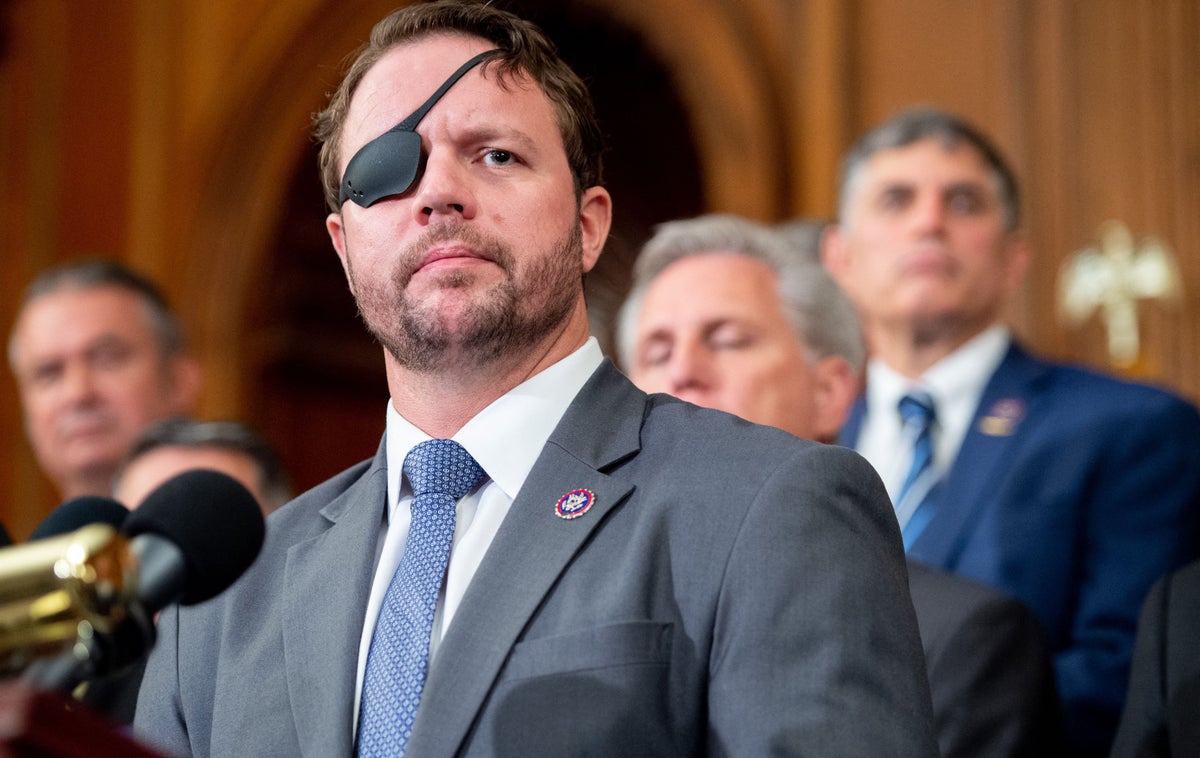
A Texas lawmaker was pressed by CNN’s Dana Bash over why he was rejecting out of hand provisions that many experts agree would have stopped or at least had a chance of preventing the horrific massacre in Uvalde, Texas last week.
Dan Crenshaw, a conservative Repubican known for his public sparring with far-right members of his own party like Marjorie Taylor Greene, joined CNN’s State of the Union on Sunday for an interview with Ms Bash, who spoke live from the scene of the shooting in Mr Crenshaw’s home state that last weekend resulted in the deaths of nearly 20 young children.
In the interview, Mr Crenshaw roundly rejected a number of suggestions that have popped up in resposne to the Uvalde shooting, such as raising the age requirement for ownership of an AR-15 or the imposition of so-called “red flag laws”.
"You know, what happens then when we see a 22-year-old commit an atrocity? Are we going to raise it again? And are we going to raise it again? And at a certain point we have to ask ourselves where a limiting principle is,” he told CNN. The vast majority of school shootings are committed by persons under the age of 21.”
He was pressed by Ms Bash about America’s culture of gun ownership as a whole.
“Congressman, it sounds like you’re saying that guns in this country are not a problem, is that what you’re saying? I mean there are 300-something million people, 400 million guns, you don’t see that as a problem?”
“No, I think culturally we are a country that has long had a Second Amendment that believes in the right to self-defence. And I don’t think that it’s a problem that I own guns...because I’m not the person who goes and shoots somebody,” he said.
Mr Crenshaw at another point in the interview tried to dismiss the idea that a red-flag law could have stopped the Uvalde shooting despite the fact a student who knew the Uvalde shooting suspect had outlined his suspicions in a plain text to his cousin just days before the massacre, according to The New York Times: “He finna shoot something up.”
On red-flag laws, he added: “What you’re essentially trying to do with the red flag law is enforce the law before the law has been broken. And it's a really difficult thing to do, it’s difficult to assess whether somebody is a threat.”

"This may be something we could agree on is improving our background check system because, look, again, he went through a background check. So the problem isn't that a red flag law could have solved this, it doesn't seem clear that would have happened," he added.
Red-flag laws notably have nothing to do with background checks. Family members or members of law enforcement can request a temporary restrictive order from a court banning a person from possessing firearms if they are suspected to be a danger to themselves or others; nearly 20 states, including Florida, have such laws on the books and they have been associated in some states with significant drops in suicide rates.
Congress is set to deliberate on responses to the Uvalde shooting, including some restrictions on firearm ownership, in the coming weeks and due to the Democrats’ majority in the House Mr Crenshaw’s vote is not needed for the president’s party to pass measures through the lower chamber.
Whether such measures can pass the Senate is another issue, however, given the chamber’s 50-50 split and 60-vote filibuster threshold.
Members of the Senate are reportedly huddling over the chamber’s recess period in the coming days around potential responses including what some have described as a federal grant program that would incentivize the passage of red flag laws at the state level.
Democras are also calling for the minimum age for owning an assault-style weapon to be raised, while far-left members of the party including Sen Bernie Sanders believe the weapons should be banned outright.







